Get Involved
There are so many ways you can help make a difference in the lives of patients and families today.
Information and activities for children and families affected by brain tumours.
A brain tumour diagnosis can have wide-reaching effects. If you find yourself in need of financial support for food, clothing, rent, utilities, or household items, there is support for you.
You may also find that you need childcare, disability or accessibility supports, personal care, or other community services. All provinces and territories in Canada offer a 211 Service with a searchable database and/or the opportunity to speak with someone who can connect you with necessary resources.
211 Services can be reached by dialing or texting 211, or through their website here: https://211.ca/
You can often find similar supports through your region’s government website. Additionally, the Government of Canada provides Income Assistance for a variety of demographics.
More information can be found here:
https://www.canada.ca/en/employment-social-development/services/benefits/income-assistance.html
Furthermore, the Canadian Cancer Society has a list of financial supports broken down nationally and regionally, which can be found here: https://www.cancer.ca/en/support-and-services/support-services/financial-supports-by-province/?region=on
The Canadian Cancer Society also has a database of community supports, which can be found here: https://www.cancer.ca/en/support-and-services/support-services/find-services-in-your-area/?region=on
We hope that these resources support you as you move through this new land.
When you or someone you love has a brain tumour, you may feel frightened, overwhelmed, and unsure of where to turn. Grief is a common and expected reaction to a brain tumour diagnosis and it can become a long-term companion on your journey. Understanding grief, being able to talk about it, and knowing how to support others who are grieving can make a difference. Brain Tumour Foundation of Canada has compiled a list of grief and social resources you can connect with in Canada to make life just a little bit easier.
National Alliance for Grieving Children: https://childrengrieve.org/
KidsGrief.ca: https://kidsgrief.ca/
Children and Youth Grief Network: https://www.childrenandyouthgriefnetwork.com/
Dr. Jay Children’s Grief Centre: https://drjaychildrensgriefcentre.ca/
Heart House Hospice: https://hearthousehospice.com/
Lighthouse Program for Grieving Children: http://www.grievingchildrenlighthouse.org/index.php
Rainbows – Guiding Kids Through Life’s Storms: https://rainbows.org/
Canadian Alliance for Grieving Children: https://grievingchildrencanada.org/
Teenage Grief Sucks: https://www.teenagegriefsucks.com/
Canadian Virtual Hospice: http://stage.virtualhospice.ca/en_US/Main+Site+Navigation/Home.aspx
MyGrief.ca: https://www.mygrief.ca/
AfterTalk: https://www.aftertalk.com/
British Columbia Bereavement Helpline: https://www.bcbh.ca/pages.php?pID=20
Bereaved Families of Ontario: http://bfolondon.ca/helping-the-bereaved/
Speaking Grief: https://speakinggrief.org/
Dr. Bob Kemp Hospice (Grief Support Text and Chat Service): https://kemphospice.org/support-line
What’s Your Grief: https://whatsyourgrief.com/

These resources provide parents strategies and language to approach various subjects related to brain tumours, illness, and death with their children.
Children pick up on adults’ feelings and apprehensions around subjects like sickness and death. Using age-appropriate language and being honest about the situation can put children at ease and reduce their worries.
When everything is suddenly different due to illness, keeping rules in place means children won’t have to guess about the consequences of their actions. Remember, to discipline is to teach, not to punish.

This simple memory game is good for all ages and uses objects that can be easily found in and around your home.
Download the PDF to learn more.
Download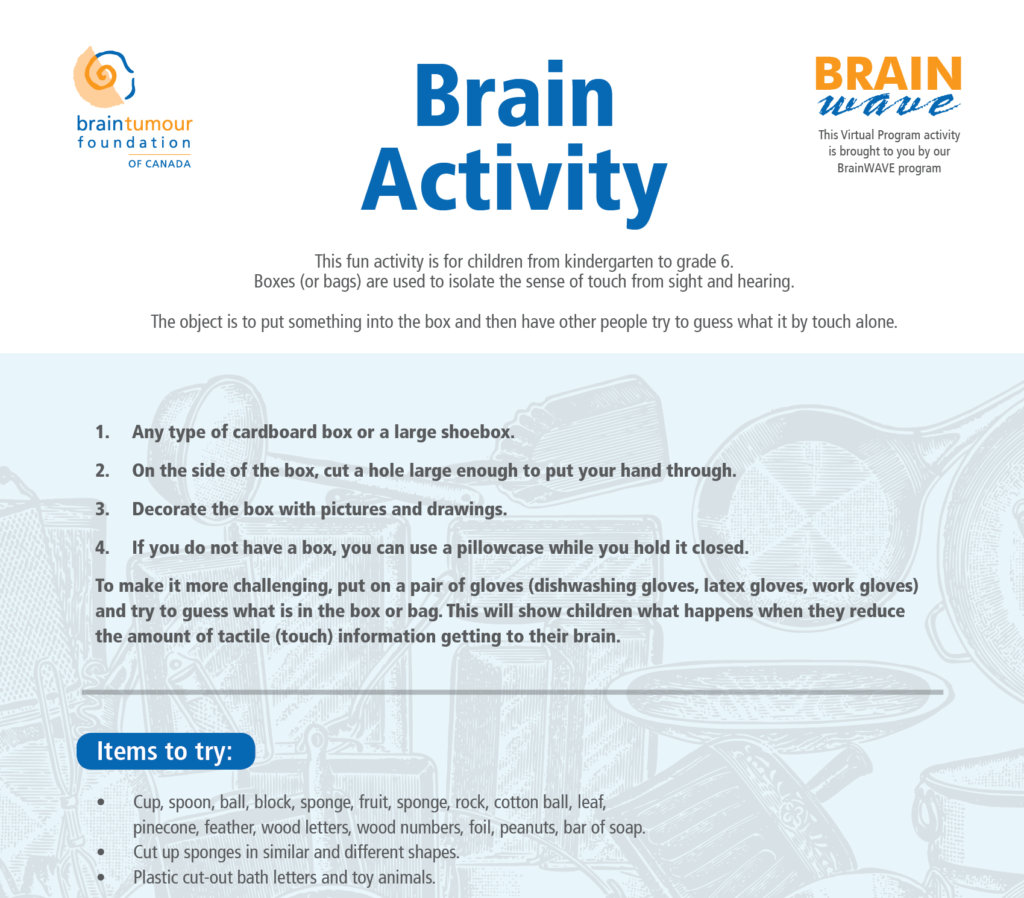
Boxes (or bags) are used to isolate the sense of touch from sight and hearing. The object is to put something into the box and then have other people try to guess what it by touch alone.
This fun activity is for children from kindergarten to grade 6. Download the PDF to learn more.
Download
See the world – stay at home!
Travel may be on hold because of the pandemic, but you still have the opportunity to visit all kinds of places from the comfort of your home – no boarding pass or check-ins needed.
Download our list of tours and embark on your adventure.
Download and set sail!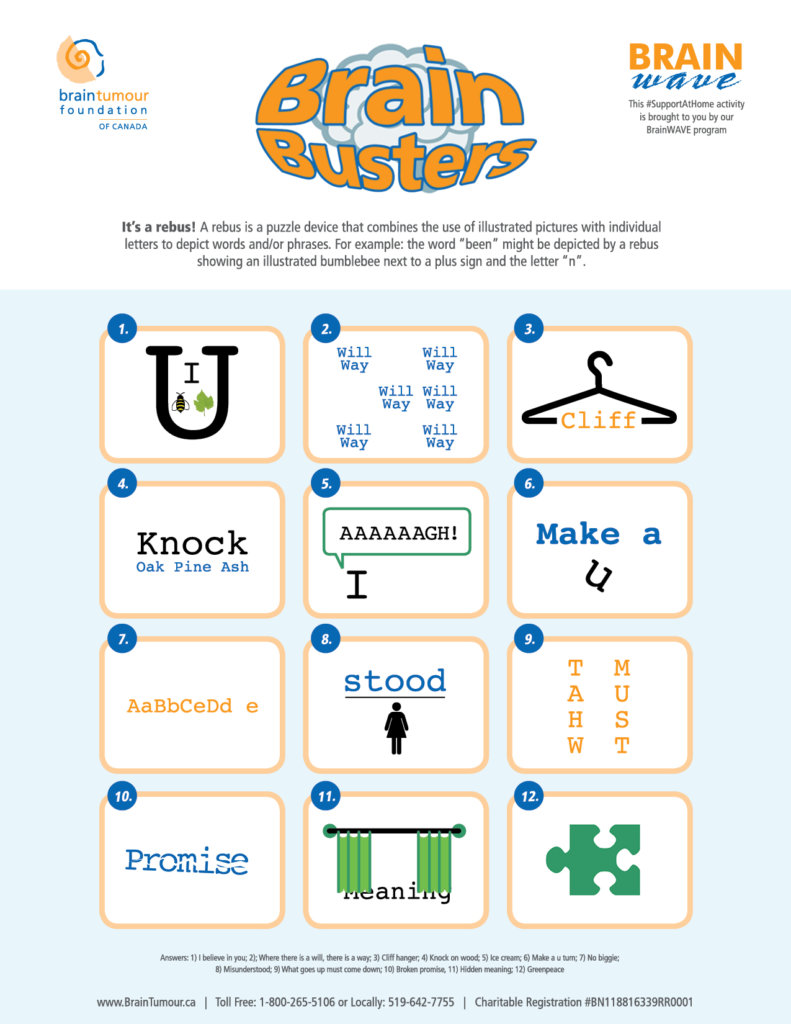
Puzzling pictures and cryptic clues – here is a rebus made just for you!
See if you can solve these visual clues to some common phrases and figures of speech. Download a copy or view it online, and feel free to make a rebus of your own!
Download and start solving!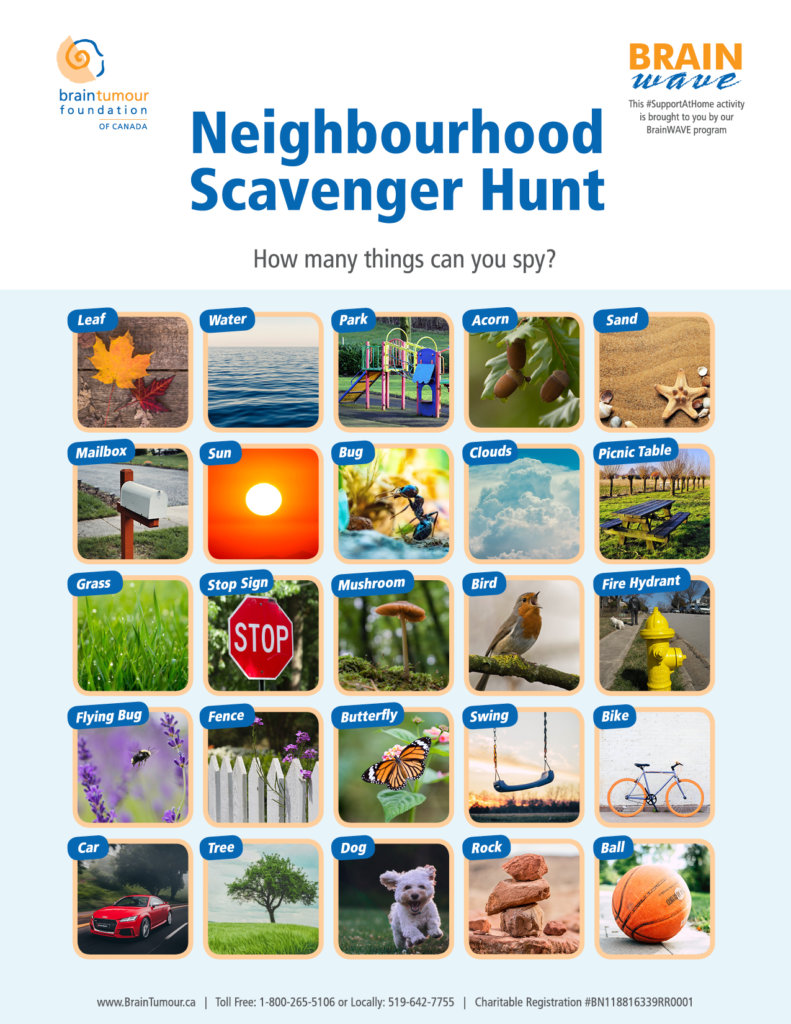
There is something so great about getting out and exploring the outdoors. There is so much to see and do, and you don’t even have to go far from home to take it all in. Next time you are out for a walk, take along this scavenger hunt list and see if you can spot everything on it.
Download here - Happy hunting!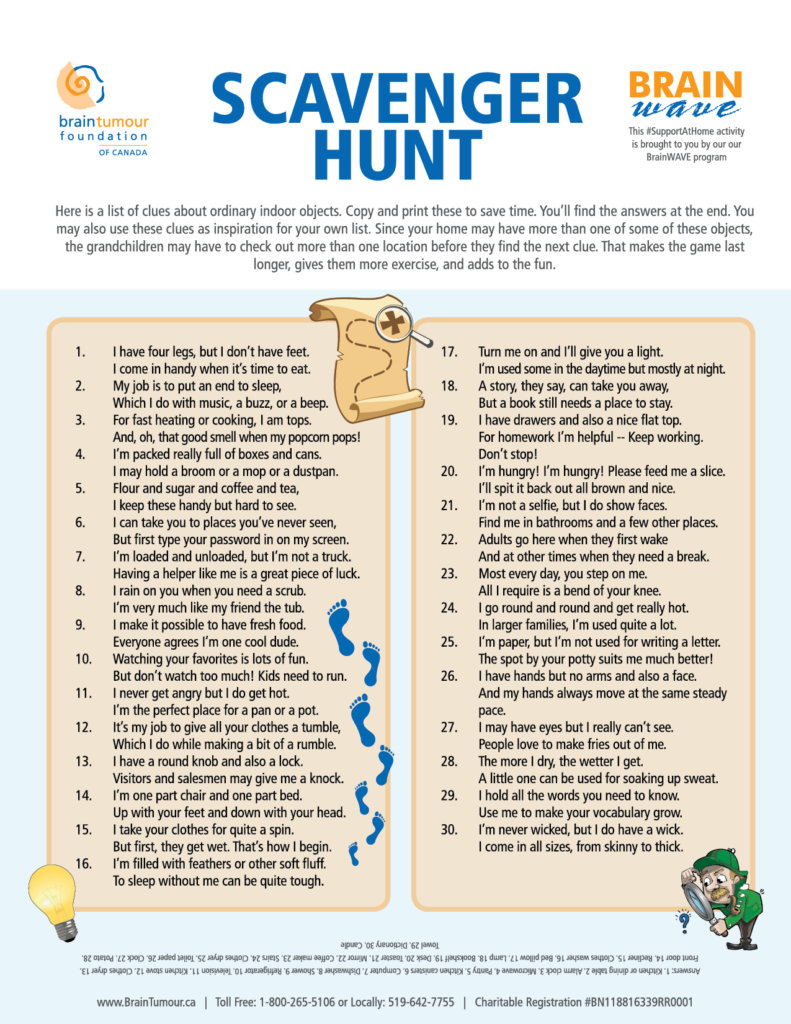
The perfect rainy-day activity!
Ready for some detective work? Get your thinking caps on, kids, and see if you can find all the items on this cryptic list.
HINT: Everything on the list can be found right in your own home.
Download and join the hunt!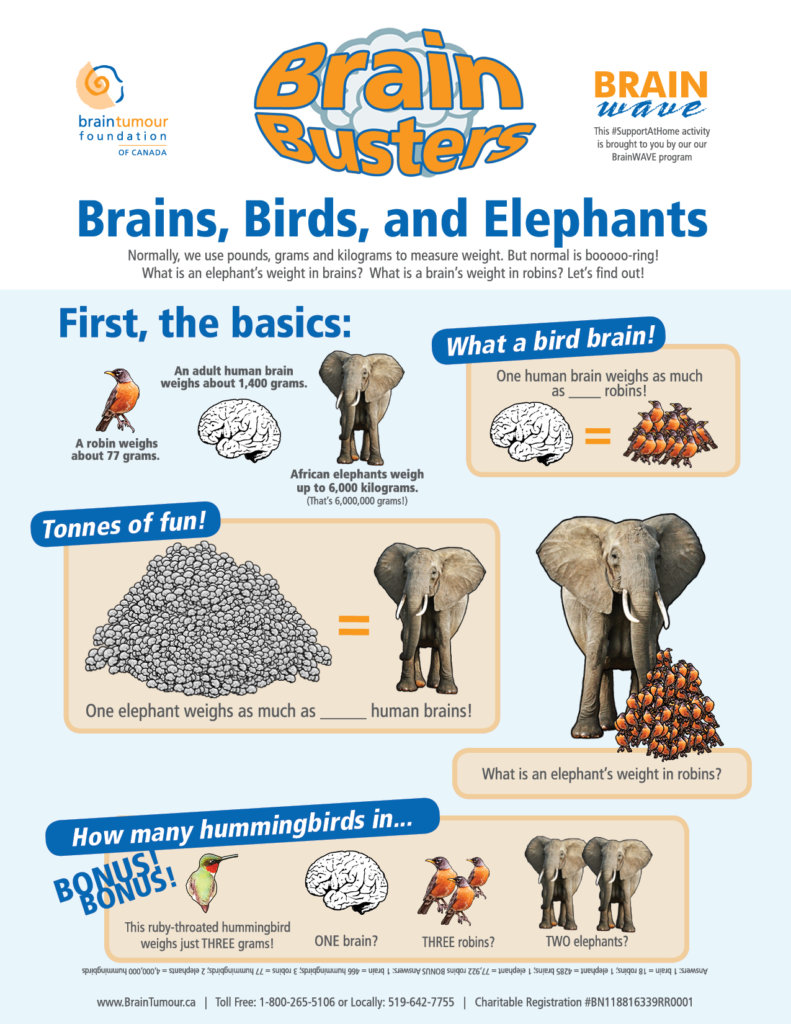
Put your math skills to the test by figuring out how many brains it takes to weigh as much as an elephant! Brains not your thing?
How many hummingbirds in a robin? How many robins in an elephant? Download this activity page and get calculating!
Download and prepare to be perplexed!
Who doesn’t love cookies? Nobody, that’s who. Cookies are delicious.
In just 45 minutes, you can mix, measure and bake your way to a yummy treat with this recipe from Myriam Boucher-Pinard. Myriam is one of our Co-Coordinators for the Montreal Brain Tumour Walk. She got involved with the Brain Tumour Foundation of Canada first as a student researcher after her father was diagnosed with brain tumours, and now she is an AMAZING volunteer for our community.

